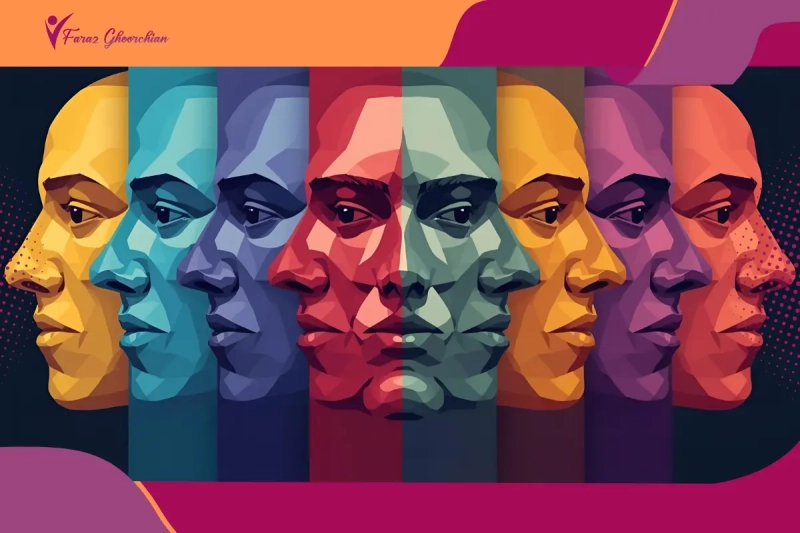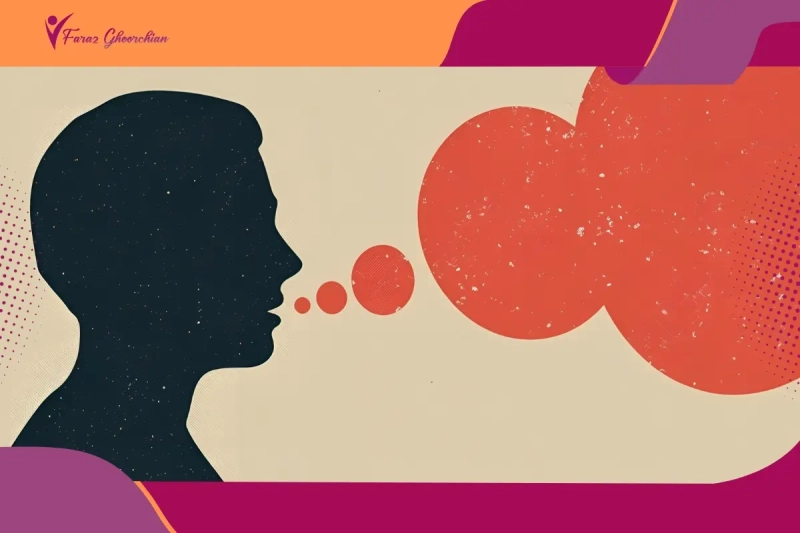Bipolar disorder is one of the most significant mental health disorders, characterized by extreme mood swings, including sudden elevation of mood (mania or hypomania) or periods of depression, which can severely disrupt one’s quality of life. Due to its broad spectrum, diagnosing bipolar disorder can be challenging for doctors. Therefore, timely diagnosis and appropriate treatment from a professional psychotherapist are crucial, as early diagnosis can improve the quality of life and reduce the risk of complications affecting work relationships and physical health.
-
1.
What is Bipolar Disorder?
- 1.1. Categories of Bipolar Disorders:
- 1.2. What Are the Symptoms of Bipolar Disorder?
- 1.3. How Do I Know If I Have Bipolar Disorder?
- 1.4. Differences in Bipolar Disorder Symptoms in Men and Women
- 1.5. Is Bipolar Disorder Hereditary?
- 1.6. When Does Bipolar Disorder Start?
- 1.7. Bipolar Disorder and Marriage
- 1.8. Does Bipolar Disorder Have a Cure?
- 1.9. Educational Guide on Bipolar Disorder
What is Bipolar Disorder?
Among the plethora of mental disorders, bipolar disorder holds a special place. Intense mood swings, deep depressions, and uncontrollable manias provide a general picture of this disorder. Though many may be familiar with the term bipolar disorder, a precise and scientific understanding of what bipolar disorder is remains challenging for many in the community.
In simple terms, bipolar disorder is a mood disorder characterized by severe mood swings, depression, and mania (or hypomania). Individuals with this disorder experience alternating periods of high and low emotions, which can significantly affect their daily life, relationships, and performance.
Categories of Bipolar Disorders:
-
Bipolar Depression:
This period involves deep sadness, hopelessness, and a lack of pleasure, essentially severe depression.
-
Bipolar Mania:
This period involves intense joy, irritability, or unreasonable pride, known as mania or hypomania.
-
Cyclothymic Bipolar Disorder:
This includes milder periods of mania and depression, with patients rapidly switching states.
-
Unspecified Bipolar Disorder:
This type doesn’t meet the full criteria for any known type but still involves abnormal mood swings.
Individuals without bipolar disorder may experience mood swings, but these changes are shorter and do not significantly disrupt daily routines or social interactions. In contrast, bipolar disorder can severely affect personal relationships and work or school performance. If you or someone close to you is struggling with these issues, seeking immediate help from a professional psychiatrist is the best course of action.
What Are the Symptoms of Bipolar Disorder?
Bipolar disorder, also known as manic-depressive illness, is characterized by extreme mood swings. People with bipolar disorder experience periods where their emotions are abnormally high (mania or hypomania) or abnormally low (depression). These mood swings can affect thoughts, behavior, and daily functioning.
- Uncontrollable elevated and happy mood
- Excessive talking and rapid speech due to numerous uncontrollable thoughts
- Impulsive behaviors and risky decision-making, such as gambling or reckless driving
- Increased self-esteem and a sense of having exceptional talent
- Lack of focus and distraction
Symptoms of Depression:
- Persistent low mood, sadness, or hopelessness, and an inability to feel happiness
- Loss of interest in daily activities and an inability to enjoy activities
- Constant fatigue despite adequate rest and sleep
- Thoughts of death or suicide
If you suspect that you or someone you know has bipolar disorder, it is advisable to speak with a mental health professional who can diagnose the disorder and start appropriate treatment.
How Do I Know If I Have Bipolar Disorder?
Diagnosing psychological illnesses is generally difficult and time-consuming because many personality disorders share similar symptoms, making it hard to determine whether these symptoms indicate a mental illness. Therefore, professional help is required.
You might be wondering, “How do I know if I have bipolar disorder?” To answer this question:
-
Check for Key Symptoms:
First, examine some of the key symptoms of bipolar disorder within yourself.
-
Psychological Tests:
There are psychological tests available that can help you identify this disorder.
-
Consult a Specialist:
Keep in mind that the results from bipolar disorder tests are not always reliable, and it is necessary to consult with a psychologist or psychiatrist to confirm the diagnosis.
Differences in Bipolar Disorder Symptoms in Men and Women
Both men and women with bipolar disorder experience abnormal highs (mania or hypomania) and lows (depression), affecting their thoughts, behavior, and daily functioning. While many symptoms are common in both genders, some differences exist:
-
Age of Onset:
Women: Late teens to early 30s
Men: Late teens
-
Severity:
Women: Milder manic states
Men: More severe mania or depression
-
Mood Type:
Women: More depression
Men: More suicidal thoughts
-
Cycles:
Women: Slower, more regular cycles
Men: Faster, more frequent cycles
-
Co-occurring Conditions:
Women: Migraines, thyroid disorders, obesity, anxiety
Men: None
-
Risk Behaviors:
Women: Less
Men: Substance and alcohol abuse during manic episodes
-
Hormonal Impact:
Women: Mood changes and disease recurrence with menstruation and menopause
Men: Less hormonal impact
-
Seeking Treatment:
Women: More likely to seek treatment
Men: Less likely to seek treatment
-
Outcomes:
Women: Lower suicide risk
Men: Higher suicide risk, more work and social problems
Is Bipolar Disorder Hereditary?
One of the common questions about bipolar disorder is whether it is hereditary. In short, yes, bipolar disorder can be hereditary.
Research indicates that genetics play a significant role in the development of this disorder. If a close relative, such as a parent, sibling, or child, has bipolar disorder, your chances of developing the disorder are increased.
However, it is important to remember that heredity does not guarantee the onset of the disease. Having a family history of bipolar disorder is merely a risk factor. Many other factors, such as trauma, stress, and substance abuse, also contribute to the development of bipolar disorder.
When Does Bipolar Disorder Start?
After hearing about and reading the symptoms of bipolar disorder, you might wonder at what age bipolar disorder typically begins.
Bipolar disorder can occur at any age, but it is generally diagnosed during adolescence or early adulthood.
Statistics show that the most common onset age for bipolar disorder is between 15 and 19 years old. In fact, about 70% of individuals with bipolar disorder experience their first symptoms before the age of 25.
While it is rare, bipolar disorder can sometimes occur in young children. In adults, the disorder can begin at any age, and it can even develop in older individuals.
Bipolar Disorder and Marriage
Marriage, in itself, has many complexities, and if one of the partners has a psychological disorder, such as bipolar disorder, the challenges can multiply. Therefore, it is essential to expand your knowledge about bipolar disorder and marriage, and seek advice from a specialist on how to communicate and live with someone experiencing depression or mania, as living with such a person can bring additional challenges.
Does Bipolar Disorder Have a Cure?
If we address the question of whether bipolar disorder can be cured with a short answer, it would be no; this disorder does not have a definitive cure. However, individuals with bipolar disorder can manage their symptoms and lead healthy and fulfilling lives.
With the help of specialized and experienced doctors in this field, the best treatment method will be utilized based on the condition of the disorder. Here is a brief overview of some treatments:
- Medication: Various medications are used to treat bipolar disorder. The most common type of these medications are mood stabilizers, which help balance mood. Other medications, such as antidepressants, antipsychotics, and anti-anxiety drugs, are also sometimes prescribed.
- Psychotherapy: Psychotherapy can help individuals with bipolar disorder understand their condition, develop coping mechanisms, and deal with daily life challenges. Different types of psychotherapy are beneficial for bipolar disorder, including:
- Cognitive Behavioral Therapy (CBT)
- Interpersonal and Social Rhythm Therapy (IPSRT)
- Lifestyle Changes: Lifestyle changes, such as regular sleep, exercise, a healthy diet, and avoiding alcohol and drugs, can help manage bipolar disorder symptoms and improve overall health.
The crucial point in treating bipolar disorder is to ensure that you see a qualified specialist and actively participate in your treatment to achieve the desired outcome.
Educational Guide on Bipolar Disorder
Timely diagnosis of psychological disorders certainly helps in preventing their spread and better controlling the symptoms. This also applies to bipolar disorder. Early diagnosis and treatment can help control symptoms, reduce the risk of relapse, and improve quality of life.
If you receive a professional and specialized guide on bipolar disorder from a doctor, the doctor will prescribe necessary medications if needed after assessing your issues. Additionally, clinical psychologists can start psychotherapy.
What is bipolar disorder? Bipolar disorder is a mental illness characterized by severe mood swings. These fluctuations include periods of mania (intense happiness, energy, and restlessness) and depression (feelings of sadness, hopelessness, and lack of motivation).
Recognizing the symptoms of bipolar disorder in both men and women can help you make better decisions when encountering such individuals in your personal or professional life.
With scientific and therapeutic advancements, the future outlook for individuals with bipolar disorder is brighter than ever. By increasing awareness and understanding of this disorder, individuals with bipolar disorder can lead healthy and meaningful lives. To this end, it is advisable to seek help from specialists in this field.
Frequently Asked Questions:
Is Bipolar Disorder Treatable?
Not completely, but appropriate treatment helps individuals with this disorder manage their symptoms and lead healthier lives.
What Role Do Family and Friends Play in the Treatment of Bipolar Disorder?
Family and friends play a crucial role in the recovery of individuals with bipolar disorder.
What Should We Do If We Observe Symptoms of Bipolar Disorder in Ourselves or Others?
If you notice symptoms of bipolar disorder in yourself or others, seek professional help from mental health specialists as soon as possible.
Can Individuals with Bipolar Disorder Lead Normal Lives?
Yes, with proper treatment, many individuals with bipolar disorder can lead normal lives and even have successful relationships both professionally and personally.
What Does Bipolar Personality Disorder Mean?
Individuals with bipolar disorder frequently experience personality changes, making it difficult to trust their decisions.

















19 Responses
Impressive!
stallar essay
Admirable effort!
utstanding article!
You’re on fire!
Exceptional content about bipolar disorder!
Terrific blog!
Remarkable effort!
You’re a rockstar!
Well done!
Exceptional content about bipolar disorder!
Exceptional achievement!
Remarkable effort!
Stellar essay and Phenomenal content about bipolar!
bravo zoulu superb!
hats off to you
you knocked it out of the park!
terrific blog!
Mashaallah ya akhi
Hala ManeHaghighi
Really useful and meaningful
Thanks
Damn